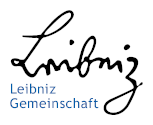- Das Institut
- Forschung
- Diktaturen im 20. Jahrhundert
- Demokratien und ihr historisches Selbstverständnis
- Transformationen in der neuesten Zeitgeschichte
- Internationale und transnationale Beziehungen
- Editionen
- Dissertationsprojekte
- Abgeschlossene Projekte
- Dokumentation Obersalzberg
- Zentrum für Holocaust-Studien
- Berliner Kolleg Kalter Krieg
- Publikationen
- Vierteljahrshefte
- Archiv
- Bibliothek
- Zentrum für Holocaust-Studien
- Aktuelles
- Termine
- Presse
- Neuerscheinungen
- Aus dem Institut
- Themen
- Spielfilm im Nationalsozialismus
- Reordering Yugoslavia, Rethinking Europe
- 75 Jahre Institut für Zeitgeschichte
- München 1972
- Confronting Decline
- Digitale Zeitgeschichte
- Zeitgeschichte Open
- Das Deutsche Verkehrswesen
- Bundeskanzleramt
- Demokratische Kultur und NS-Vergangenheit
- Geschichte der Treuhandanstalt
- Akten zur Auswärtigen Politik
- Dokumentation Obersalzberg
- Edition "Mein Kampf"
- "Man hört, man spricht"
- Newsletter
Well-Intended but Powerless?
During the 1990s, the ‘international community’ was accused of being ‘powerless’ and of ‘doing nothing’, without anyone questioning its desire to put an end to the Yugoslav wars. However, the way in which various international players managed these wars cannot be understood without taking four essential facts into account : a) the Yugoslav wars involved primarily state and inter-state actors; b) the state and inter-state actors from outside the region influenced significantly the development of the war ; c) their action was partly motivated by the pursuit of peculiar objectives such as the redefinition of power relations in Europe or the role of the EU, NATO or the United Nations in the post-1989 world; d) the same actors based their action on the principle of the nation-state (in its ‘idealistic’ or ‘realistic’ version), without considering other possible forms of government.
Online-Lecture by Xavier Bougarel (Centre d’Études Turques, Ottomanes, Balkaniques et Centrasiatiques, Paris)
The Web Lecture Series “Transregional Histories of the Yugoslav Wars” is part of the research project “Reordering Yugoslavia, Rethinking Europe”, which is organized by the Leibniz Institute for Contemporary History together with the Humboldt University of Berlin and the Leibniz Institute for East and Southeast European Studies.
LOCATION
You are invited to join the lecture and discussion via Zoom.
Meeting-ID: 972 5807 1223
Kenncode: 672812
REGISTRATION
No pre-registration is required for participation.




